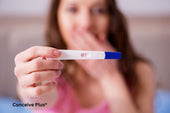When Do Women Find Out They are Pregnant: Exploring Key Milestones

Pregnancy is a unique journey often marked by a blend of excitement and apprehension. For those eagerly awaiting a positive result or entirely unprepared for parenthood, recognizing the timeline of when do women find out they are pregnant can alleviate some anxieties. Knowing what to expect involves understanding how the body communicates early changes, as well as being aware of medical confirmation methods that help distinguish typical symptoms from definitive indicators. Whether someone is prepared for conception or caught by surprise, clarity about early pregnancy detection fosters better physical and emotional health. Although not all signs appear uniformly, building awareness of this broad spectrum empowers individuals to respond effectively to new circumstances.
This article will discuss the varied ways people discover they are pregnant, including common bodily cues, diagnostic tools, and factors that can lengthen or shorten the timeframe. While technology has made pregnancy detection easier than in previous generations, it is vital to recognize that no single timetable applies to everyone. By considering how social, physiological, and psychological aspects come together, we can better understand how long it might take to find out about the presence of new life.
Early Signs and Bodily Indicators
Before medical confirmation, the body may begin to exhibit subtle changes. Hormonal fluctuations can prompt notable shifts, including breast tenderness and mild fatigue. These signs can mimic premenstrual syndrome, making it difficult to differentiate between typical monthly cycles and potential pregnancy. Some people experience heightened sensitivity to odors or a metallic taste in their mouth. Others find themselves unexpectedly nauseous, often referred to as morning sickness, though queasiness can emerge at any time of day [1].
Headaches are another frequently reported symptom due to hormonal surges that affect blood vessels and fluid balance. Additionally, increased bathroom visits can occur when pregnancy hormones induce extra blood flow, leading to more frequent urination. While many women consider a missed period the clearest signal of potential pregnancy, variations in the menstrual cycle—especially if periods are irregular—can cause confusion.
These early physical markers sometimes appear as soon as two weeks after conception. However, individual biology heavily influences how rapidly these indicators manifest or whether they appear at all. Consequently, noticing these hints does not guarantee pregnancy, but they can warrant a closer examination of one’s overall health.
If you're wondering whether you can get pregnant when not ovulating, be sure to check out our article 'Can You Get Pregnant When Not Ovulating?' for detailed insights on this topic.
Medical Testing and Hormonal Changes
For anyone suspecting pregnancy, medical testing offers a precise method of confirmation. Over-the-counter home pregnancy tests detect the presence of human chorionic gonadotropin (hCG) in urine. This hormone begins to rise shortly after the fertilized egg implants in the uterine lining, generally occurring around six to twelve days post-conception. When the hCG levels reach a detectable threshold—often about two weeks from fertilization—the test can yield a reliable result [2].
Blood tests conducted by healthcare professionals can identify hCG even sooner than urine tests, though both methods tend to be accurate once enough hormone accumulates. The timing of testing plays a crucial role; taking a home test too early may result in a false negative if the hormone remains too low to measure. That is why some individuals wait until after a missed period to test, reducing the probability of inaccurate outcomes.
For those monitoring their fertility, identifying ovulation periods can expedite detection. By correlating the likely conception date with expected hormone surges, a person can pinpoint the optimal moment for testing. Nonetheless, hormone production rates differ among individuals, so there is still some variance in how quickly levels reach a test’s detection threshold.
Physical and Emotional Factors that Shape Awareness
Physiology greatly impacts awareness. Body mass index, existing health conditions, and stress can all play a role in when recognizable signs appear. Additionally, lifestyle routines, such as diet, work schedules, and exercise regimens, may either mask or magnify emerging symptoms. For instance, someone who regularly experiences bloating or fatigue due to high-intensity workouts might overlook these changes as normal fluctuations, potentially delaying suspicion of pregnancy.
Emotional health also holds sway. Those eagerly trying to conceive may be more attuned to slight bodily nuances, raising the likelihood of noticing new developments early. Conversely, individuals not anticipating pregnancy might rationalize initial signs as side effects of stress or a busy lifestyle, recognizing the true cause later in the process. Heightened emotional awareness can bring clarity, but anxiety about outcomes might spark confusion and lead to second-guessing bodily cues [3].
Sometimes, external pressures, such as job demands or caregiving responsibilities, divert attention from subtle changes. Even if a person suspects pregnancy, uncertainty can cause hesitation in seeking confirmation immediately. By the time a diagnosis occurs, the gestational period might be several weeks along.
Differences in Detection Across Various Groups
One of the most compelling aspects of pregnancy discovery is its variability. Certain groups uncover this news sooner due to consistent menstrual cycles or the use of advanced fertility tracking methods. Others may wait weeks before suspicion arises, particularly if their cycles are naturally sporadic or if they regularly experience menstrual-like symptoms unrelated to pregnancy.
Socioeconomic factors can also affect detection. Access to healthcare services, cost of tests, and even geographical limitations can hamper prompt medical visits or purchase of over-the-counter kits. Additionally, cultural influences might shape how individuals interpret bodily shifts. In communities where open discussions about reproductive health are less common, individuals may feel reluctant to share concerns or might rely on anecdotal remedies before seeking formal advice [4].
Age and health histories also influence detection timelines. Teens may lack awareness of typical pregnancy indicators if they are accustomed to irregular cycles. Meanwhile, adults with conditions like polycystic ovary syndrome could mistake pregnancy signals for flare-ups of their pre-existing issues. Consequently, many wonder exactly how long till you know your pregnant if your body does not follow a standard pattern.
Common Timeframes and Statistical Averages
From a broader standpoint, there are some general windows when this life transition tends to be confirmed. On average, a missed period is the catalyst for many to investigate further. For those with predictable cycles, even a small delay can prompt quick action. Research indicates that when do most people find out they are pregnant often hinges on this clue, prompting them to take a home test within a week of noticing a menstrual discrepancy.
Additionally, a significant number realize they might be pregnant once early symptoms align with a specific timeframe—typically at least two weeks post-ovulation. When do most women know they are pregnant? Many become aware between the fourth and sixth weeks of gestation, usually correlating with a missed period and the onset of nausea or fatigue. However, individuals with less predictable cycles or mild symptoms might remain unaware until their second month or later.
In certain cases, women learn of their pregnancies much further along. These scenarios can arise if the pregnancy was unplanned, if initial signs were particularly subtle, or if contraceptive methods masked typical signals. While not exceedingly common, some individuals only discover they are pregnant during routine medical evaluations or second-trimester ultrasounds [5].
Breaking Down Myths and Misconceptions
Popular myths abound regarding early pregnancy detection, often clouding reality. One widespread belief is that every individual immediately experiences morning sickness, which then becomes a surefire sign. In truth, some never feel nauseous, while others grapple with queasiness at different points throughout the day. Noting that morning sickness does not universally occur helps dispel undue alarm if it is absent, or unfounded certainty if it is present but related to unrelated digestive issues.
Another misconception is that missing even a single period definitively confirms pregnancy. Sometimes, factors like stress, exercise, or sudden weight changes can alter menstrual cycles. Although an absent period stands out as a major clue, validating the cause with a reliable test is essential. Similarly, spotting or irregular bleeding sometimes suggests pregnancy complications, but light bleeding could occur during implantation or be completely unrelated. Therefore, it is wise not to rely solely on external anecdotes.
Cravings often receive disproportionate attention as an obvious tip-off, yet these urges can coincide with stress or nutritional deficiencies. Although some pregnant individuals do crave unusual combinations or flavors, not everyone experiences drastic dietary changes. Dispelling these blanket assumptions helps people better interpret genuine signals.
If you're curious about the likelihood—can you get pregnant on your period—and want to know the chances before and after, be sure to check out our article 'Can You Get Pregnant on Your Period and What Are the Chances Before and After?' for more detailed insights.
Role of Healthcare Professionals and Proper Guidance
Healthcare providers play an indispensable role in providing clarity. Once suspicion arises, scheduling an appointment for a blood test or ultrasound can confirm the pregnancy and approximate how far along someone might be. Early prenatal consultations help identify nutritional or medical support to foster a healthy pregnancy. Providers can also rule out complications, such as ectopic pregnancies, which can present with atypical symptoms.
Beyond immediate testing, healthcare professionals offer accurate guidance on vitamins and lifestyle adjustments. Prenatal supplements containing folic acid, for example, can significantly decrease the likelihood of certain birth defects if taken early in gestation. Additionally, doctors can advise how to manage common discomforts like morning sickness, fatigue, and mood fluctuations.
These meetings also set the foundation for an ongoing supportive relationship. By establishing consistent checkups, expectant parents can address concerns about weight gain, exercise limitations, or emotional challenges. Such professional oversight is particularly crucial if chronic health conditions exist. While individuals may feel overwhelmed at first, healthcare consultations can assure them they are on the right track [6].
Why Some Realize Late or Unexpectedly
Though many discover pregnancy early, some remain unaware for more prolonged periods, especially if they interpret symptoms as mere hormonal imbalances or fatigue from demanding schedules. Those who have recently changed birth control might also mistake spotting or irregular cycles for a normal side effect of stopping contraception.
In rarer circumstances, a person may continue to have some bleeding that resembles a menstrual period, diminishing suspicion of pregnancy. Since not every pregnancy symptom follows a textbook pattern, a busy individual might only notice a bump or significant weight change as the first clear indication. Sometimes, an irregular shape or movement in the abdomen could prompt a test, revealing that they are already well into their second trimester.
Late discovery, while less frequent, does occur. In such cases, adjusting lifestyle habits instantly upon confirmation becomes especially important. Rapid modifications in diet, substance use, or living environment may be critical for safeguarding fetal health. Healthcare professionals typically guide people through these abrupt changes in order to secure as positive an outcome as possible.
Social and Emotional Reactions to Early Knowledge
The emotional implications of early pregnancy detection vary widely. Some individuals feel immense relief at finally receiving confirmation, while others might be overwhelmed with anxiety about their newfound responsibilities. Family dynamics, financial resources, and personal aspirations frequently converge, influencing one’s emotional landscape after discovering the news.
Sharing the revelation can evoke mixed responses from loved ones. Supportive partners, relatives, or friends may provide reassurance and practical help, encouraging timely prenatal care. Conversely, negative reactions—if pregnancy is unexpected or if personal circumstances are especially stressful—can add layers of difficulty. Nonetheless, knowledge of pregnancy, even if challenging, enables more time for decisions about prenatal care, financial planning, and overall well-being.
Support groups, either online or in-person, can be pivotal for those grappling with high stress or doubts about the future. Engaging with communities that have undergone similar experiences often reduces feelings of isolation. Whether the pregnancy is planned or sudden, connecting with empathetic listeners fosters a smoother psychological transition into parenthood.
Practical Tips for Timely Detection
Becoming adept at reading one’s body can expedite early discovery. Tracking menstrual cycles each month offers baseline data, allowing individuals to notice deviations sooner. Familiarizing oneself with common signs—like fatigue, nausea, breast sensitivity, and mood swings—enables more decisive action if symptoms arise. While these indications can appear vague, having personal reference points makes it easier to detect anything unusual.
When deciding on a home pregnancy test, selecting a reputable brand known for accuracy can reduce confusion. Checking the recommended timeframe for testing is essential, as using a kit too early might result in a misleading negative. If the outcome remains unclear or if conflicting signs persist, seeking a blood test through a healthcare facility provides higher accuracy.
As soon as suspicion turns to certainty, adopting healthy routines supports a good start. Adjusting diet to include nutrient-rich foods, avoiding harmful substances, and prioritizing adequate rest are beneficial for anyone who tests positive. These proactive measures not only foster fetal development but also lay the groundwork for positive mental health.
The Bottom Line
When do women find out they are pregnant often depends on a complex blend of physical cues, emotional readiness, and timely testing. Understanding the various signals—from early bodily changes to the missed period that prompts immediate suspicion—can streamline decision-making and reduce ambiguity. Whether someone notices new symptoms just two weeks after conception or remains uncertain until a more advanced stage, each discovery experience is unique.
By paying close attention to potential signs, leveraging accurate diagnostic tools, and seeking professional care, individuals set themselves up for a healthier pregnancy journey. In general, when do most women know they are pregnant? Many learn by the time they miss their period, but some detect changes earlier through diligent tracking, while others catch on later due to irregular cycles or subtle symptoms. No matter the circumstances, clear information and supportive guidance foster confidence and prepare expectant parents for the road ahead. For those wondering how long till you know your pregnant, the answer varies, influenced by factors like cycle regularity, body awareness, and access to pregnancy tests.
Ultimately, when do most people find out they are pregnant? The average timeframe coincides with a missed period or the emergence of more pronounced symptoms, reflecting a harmony of science, timing, and self-awareness. By recognizing possible deviations from the usual routine, individuals can seek the help they need without delay. When do women know they are pregnant in the broader sense? As soon as reliable clues combine with proper testing and medical insight, marking the start of a transformative chapter in life.
References
- Phillips K, Davison J, Wakerley B. Headache in pregnancy: a brief practical guide. Br J Gen Pract. 2022 Nov 24;72(725):593-594. doi: 10.3399/bjgp22X721457. PMID: 36424161; PMCID: PMC9710804.
- Korevaar TI, Steegers EA, de Rijke YB, Schalekamp-Timmermans S, Visser WE, Hofman A, Jaddoe VW, Tiemeier H, Visser TJ, Medici M, Peeters RP. Reference ranges and determinants of total hCG levels during pregnancy: the Generation R Study. Eur J Epidemiol. 2015 Sep;30(9):1057-66. doi: 10.1007/s10654-015-0039-0. Epub 2015 May 12. PMID: 25963653; PMCID: PMC4584104.
- Chauhan A, Potdar J. Maternal Mental Health During Pregnancy: A Critical Review. Cureus. 2022 Oct 25;14(10):e30656. doi: 10.7759/cureus.30656. PMID: 36426343; PMCID: PMC9681705.
- Bjelica A, Kapor-Stanulović N. Trudnoća kao psiholoski dogadaj [Pregnancy as a psychological event]. Med Pregl. 2004 Mar-Apr;57(3-4):144-8. Serbian. doi: 10.2298/mpns0404144b. PMID: 15462597.
- deProsse CA, Keettel WC. The missed menstrual period. Postgrad Med. 1977 Jan;61(1):251-2, 254, 256. doi: 10.1080/00325481.1977.11714526. PMID: 189296.
- Daglas V, Kostopoulos N, Mrvoljak-Theodoropoulou I, Lykeridou A, Antoniou E. Healthcare Professionals' Beliefs and Views towards Exercise during Pregnancy: A Cross-Sectional Study in Greece. Healthcare (Basel). 2024 May 25;12(11):1089. doi: 10.3390/healthcare12111089. PMID: 38891164; PMCID: PMC11171601.



















